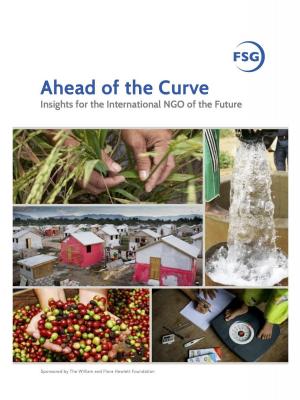Organizations involved in international development often say their ultimate goal is to “put ourselves out of business.” But most expend a whole lot of effort trying to keep themselves in business.
Big international nongovernmental organizations depend for their existence on a belief that they possess a set of technical and institutional assets that permit them to use donor resources in efficient and responsible ways to improve health, education, housing, and other outcomes in developing countries. International NGOs also depend on a belief that civil society organizations working within their own local contexts on local problems are unable to independently manage money, produce valid performance reports, or implement programs as effectively as groups with better resources from the North.
But the world is changing fast and the fundamental rationale for some international NGOs’ work is eroding. The international NGOs, part of a business sector that has been relatively insulated from forces that have disrupted other industries, now face an uncertain future.
A new report, launched last week at an InterAction-hosted retreat for NGO CEOs, describes the major forces buffeting these organizations: The problems of development are now recognized as more complex than they used to be, and more context-specific. Funders have more ways to directly support both local organizations and even individuals. Donors are demanding more evidence of impact and are less content with feel-good stories. Southern organizations, including those like BRAC and Aga Khan, are demonstrating an ability to do more for less, unencumbered by U.S. headquarters rent and expat salaries. And funders like USAID are pushing hard-to-find in-country partners. In real ways, contemporary trends are driving international development organizations to confront a crisis of relevance and legitimacy, along with changes in demand for their services and an intensified competitive environment.
The report, Ahead of the Curve: Insights for the International NGO of the Future, which we commissioned the consulting firm FSG to prepare, lays out several pathways forward. Those pathways draw on experiences some organizations have already had, and include: specializing in system change rather than project interventions, working as an advisor to the private sector rather than scrambling for corporate social responsibility dollars, and moving from pro forma prime-sub partnerships to brokering multisector actions.
The report was well received by the CEOs in attendance at the launch. The lively discussion that followed convinced me that FSG has succeeded in providing a vocabulary and framework for these leaders to use as they talk and think about the challenges they face. I was delighted, in fact, to hear CEOs of organizations large and small say they will discuss the report with their senior staff and boards, and invite FSG to make presentations to their leadership. Many said things like, “I’ve been trying to get this conversation going but it’s much easier when we have an external party telling us what’s happening in the sector at large.” Like any good report, it’s the start of a discussion, not the last word.

